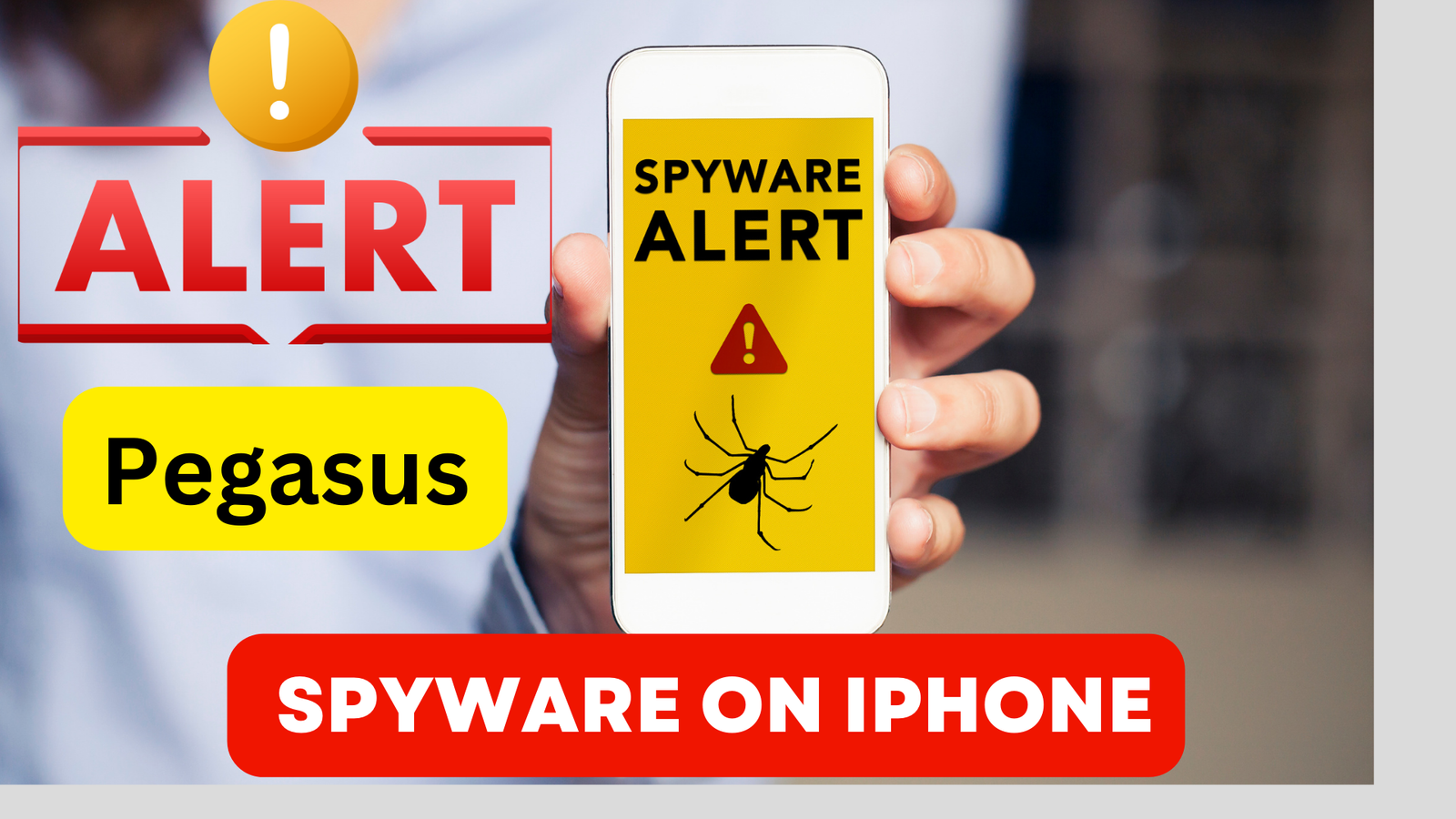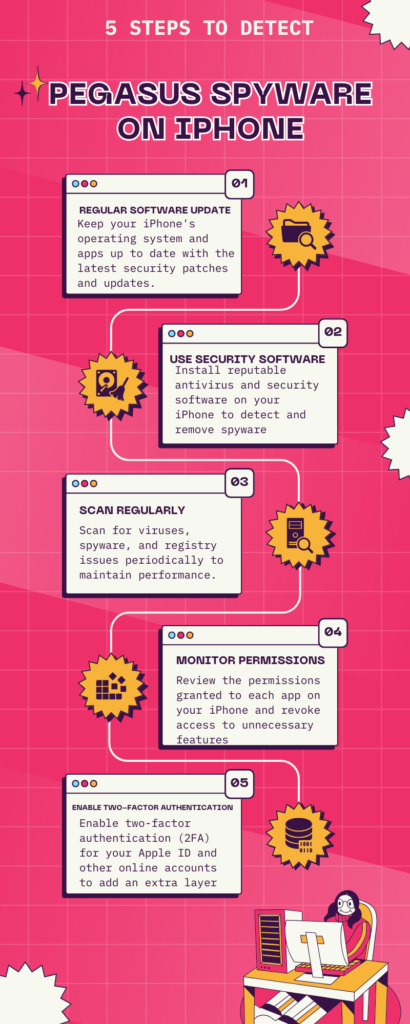How to Detect Pegasus Spyware on iPhone: The Ultimate Guide

Introduction
In recent years, the emergence of sophisticated spyware such as Pegasus has raised concerns about digital privacy and security. With its ability to infiltrate mobile devices, including iPhones, Pegasus poses a significant threat to personal data and sensitive information. In this comprehensive guide, we’ll explore how to Detect Pegasus Spyware on iPhone and protect yourself from potential cyberattacks.
Understanding Pegasus Spyware
Pegasus is a powerful surveillance tool developed by the NSO Group, a secretive Israeli company known for selling spyware to governments and intelligence agencies worldwide. Once installed on a target device, Pegasus can secretly monitor calls, messages, emails, and other communications, as well as track the user’s location and remotely activate the device’s microphone and camera.
Signs of Pegasus Infection
Detecting Pegasus spyware on your iPhone can be challenging, as it is designed to operate covertly and evade detection by antivirus software. However, there are several signs that may indicate your device has been compromised:
1. Unusual Battery Drain
Pegasus spyware consumes a significant amount of battery power as it runs in the background, constantly monitoring and transmitting data to remote servers. If you notice a sudden and drastic decrease in battery life, it could be a sign of Pegasus infection.
2. Strange Behavior
If your iPhone behaves erratically, such as freezing, crashing, or displaying unusual pop-up messages, it may indicate the presence of malicious software like Pegasus. Pay close attention to any unexpected changes in your device’s performance.
3. Unexplained Data Usage
Pegasus spyware sends captured data to remote servers, resulting in increased data usage on your iPhone.
Closely monitor your data usage and investigate any significant spikes that you cannot attribute to normal usage patterns.
Also Read : 2024’s Top Web Hosting Services
How to Detect Pegasus Spyware on iPhone
1. Perform Regular Software Updates
Keep your iPhone’s operating system and apps up to date with the latest security patches and updates. Apple regularly releases software updates that address known vulnerabilities and security issues, including those exploited by spyware like Pegasus.
2. Use Security Software
Install reputable antivirus and security software on your iPhone to detect and remove spyware and other malicious threats. Look for apps that offer real-time scanning, malware detection, and privacy protection features.

3. Monitor Permissions and Settings
Review the permissions granted to each app on your iPhone and revoke access to unnecessary features and data. Be cautious when granting permissions to new apps and avoid installing software from untrusted sources.
4. Enable Two-Factor Authentication
Enable two-factor authentication (2FA) for your Apple ID and other online accounts to add an extra layer of security against unauthorized access. This can help prevent attackers from gaining control of your device and installing spyware.
Also Read : 2024’s Top Web Hosting Services
Conclusion of Pegasus Spyware on iPhone
Protecting your iPhone from Pegasus spyware and other malicious threats requires vigilance and proactive measures. By staying informed about the latest security risks and implementing best practices for device security, you can safeguard your personal data and preserve your privacy in an increasingly connected world.
🔍 Did you find this guide helpful? Let us know in the comments below!
Must Visit:
FAQ Of Pegasus Spyware on iPhone
Yes, can be installed remotely through malicious links or messages sent via email, text, or other messaging apps.
Yes, it is possible to remove Pegasus spyware from an iPhone by performing a factory reset or using reputable antivirus and security software.
While some antivirus may detect Pegasus spyware, it’s not always guaranteed. Regular software updates and security best practices are crucial for protection.
The use of Pegasus spyware may violate privacy laws in many jurisdictions, and individuals found using it may face legal consequences.
It’s advisable to regularly scan your device for spyware and keep an eye out for any unusual activity. Additionally, implementing security measures such as two-factor authentication can help prevent unauthorized access.




